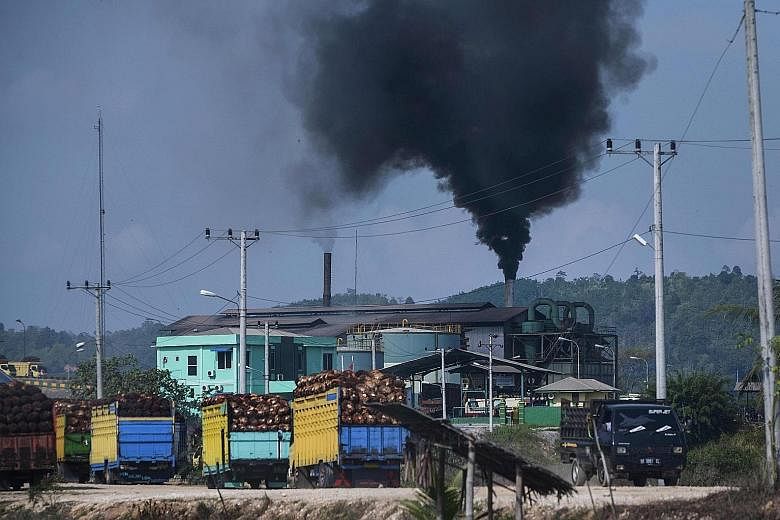BRUSSELS • EU negotiators have agreed to phase out the use of palm oil in transport fuels from 2030, setting up a clash with producer countries like Malaysia and Indonesia.
Under the deal - which needs final approval from the European Parliament and member states - at least 14 per cent of fuel for transport must come from renewables by 2030.
It stipulates that first generation biofuel must be capped at 2020 levels and in no case exceed 7 per cent of final consumption of road and rail transport.
The deal states that the share of advanced biofuels and biogas must be at least one per cent in 2025 and at least 3.5 per cent in 2030. But it said palm oil, cited as a cause of deforestation, will be phased out.
Green lawmaker Bas Eickhout, one of the negotiators in the talks on Thursday, said the use of palm oil would be capped at 2019 levels until 2023 and reduced to zero by 2030.
"That is quite a victory. There is no precedent for a phase-out of the use of specific crops," he added.
The European Parliament caused an outcry among palm producers in Asia when it called in January for a total ban on use of the commodity in road fuel, as part of its negotiating position for talks with member states to hammer out the final deal.
Indonesia, Malaysia and Thailand, which produce most of the palm oil imported into Europe, had warned ahead of Thursday's agreement that they would retaliate against what they called protectionist measures, if a ban was introduced.
A 2015 study funded by the European Commission found that palm oil and soya bean oil had the highest indirect greenhouse gas emissions because of the deforestation and the drainage of peatlands associated with their cultivation.
"Governments now have no more excuse to force drivers to burn food or palm oil in their tanks after 2020," said Ms Laura Buffet at campaign group Transport & Environment.
Palm oil has been used increasingly as a feedstock for biofuels because it is cheaper than locally produced rapeseed oil.
Half of the European Union's €6 billion (S$9.5 billion) worth of palm oil imports are used for biodiesel, according to data from Copenhagen Economics.
Thursday's agreement is part of a broader legislative package aimed at reducing greenhouse gas emissions in the EU by at least 40 per cent below 1990 levels by 2030.
Under the Paris climate deal struck in December 2015, the EU pledged to cut greenhouse gas emissions by 40 per cent by 2030, compared to 1990 levels, and make renewable energy account for 27 per cent of energy use.
REUTERS, AGENCE FRANCE-PRESSE

